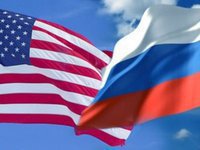One year of Magnitsky Act: Hypocrisy above all
On November 16, 2012, the U.S. House of Representatives voted in favor of Sergei Magnitsky Rule of Law Accountability Act, or the Magnitsky Act for short.

The act, in particular, provides for sanctions against members of Russian law enforcement agencies and judges allegedly involved in the death of auditor Sergei Magnitsky.
It should be noted that Russia was following the development of events around the bill a year ago, but the vote in the House of Representatives did not become a reason for wild reactions in the country.
In this sense, the verdict of the upper house of the Congress, the Senate, had a much bigger effect. Three weeks after its approval at the House of Representatives, 92 senators voted for the bill. Only four were against.
U.S. President Barack Obama did not dare to enter into controversy with the Congress on the issue, even though it is generally believed that the White House was against the Magnitsky Act. On December 14th, a week after the vote in the Senate, Barack Obama signed the bill, and it came into force.
Noteworthy, in the United States, despite the vote of both houses of the Congress, the bill received extremely negative assessment as well. Perhaps the most accurate claim was made by historian Stephen Cohen: "What is the Magnitsky Act? America, dressed in a judge's robe, bent to decide what was good and what was bad in Russia. There was no legal basis whatsoever - everything was determined by ideology."
Nixon Center President Dimitri Simes noted that "it was not up for the Congress to make lists."
At the same time, they did not conceal it in the Congress that the Magnitsky Act would come instead of the Jackson-Vanik amendment. This, in particular, was said by Republican Senator John McCain.
Formally, the act is a part of the law to normalize trade relations between the U.S. and Russia. Yet, the positive effect was reduced to nothing.
"A year ago I thought, and I still do, that the Magnitsky Act makes absolutely no sense, but to worsen relations with Russia and restrict opportunities for the Obama administration for improving dialogue with Moscow," the head of the State Duma Committee for Foreign Affairs, Alexei Pushkov, told Pravda.Ru.
In his view, "the law remains a model of hypocrisy of the U.S. Congress."
"During this year, the effect of the law has not been extended to other countries, as congressmen and senators mentioned. Some of them promised to expand the application of the law on all countries, where people in custody die under suspicious circumstances and where human rights are violated. None of that happened, of course. The hypocrisy is that people in custody die in many countries, including US allies, completely non-transparent countries, such as Saudi Arabia and some other countries in the Middle East. Yet, no laws have been approved against them," he said.
According to Alexei Pushkov, "the law has been absolutely discredited." "The law was designed not to let Russia and the U.S. improve bilateral relations. It has no practical consequences. Loud claims saying that the law would hit some corrupt figures in Russian law enforcement agencies, were empty words," said Alexey Pushkov.
He noted that the people, who were included on the "black list" on the basis of the Magnitsky Act, did not own property in the United States.
"So it's hypocritical empty. It is harmful, because it let opponents of Russia in the United States worsen relations between Moscow and Washington. This law will always be in effect. Every year, the U.S. Congress will ask the administration to include new names in it. This is like a permanent mine laid underneath the US-Russian relations, from which only anti-Russian congressmen, senators and U.S. politicians can benefit. They still live in Cold War times," said the head of the Duma Committee for International Affairs.
Yuri Rogalev, the Director of the Franklin D. Roosevelt Fund for US Studies at the Moscow State University shares a negative view on the Magnitsky Act as well.
In his view, the law was more directed against the policy of the U.S. administration. "This is an ideological and political move that was largely directed against the policies of the White House and against President Obama," the analyst told Pravda.Ru.
The law can not have long-lasting effect on the US-Russian relations. "From a practical point of view, this act was not needed. It did not create any additional rights to the White House. The administration already had all necessary powers not to let someone enter the United States or freeze their accounts," said Yuri Rogalev.
He did not rule out that some bursts of interest in the Magnitsky Act may still occur, "but they have different problems to deal with now there, and it does not receive much attention really."
The chairman of the Center for International Security of the Russian Academy of Sciences, Aleksei Arbatov, also believes that the Magnitsky Act dramatically worsened the relations between the two countries. "In response, there was a reaction from Russia, which, in my opinion, was even over the limit," he said.
Arbatov speaks about the so-called "Dima Yakovlev law." "It always happens this way - to every action there is a reaction, and reaction can be really strong. Our relations have not recovered since then. They have become worse in many aspects," he said.
Professor Oleg Matveichev of the Higher School for Economics told Pravda.Ru that his assessment of the law has not changed over the past year.
"We have repeatedly warned the Congress that such a move would deteriorate our ties, to the detriment of both Russia and America. In general, that's exactly what happened. A year has passed, and we see that the relations between the two countries have deteriorated. And it is only the US side to blame for this," said the analyst.
Anton Kulikov
Pravda.Ru
Subscribe to Pravda.Ru Telegram channel, Facebook, RSS!


